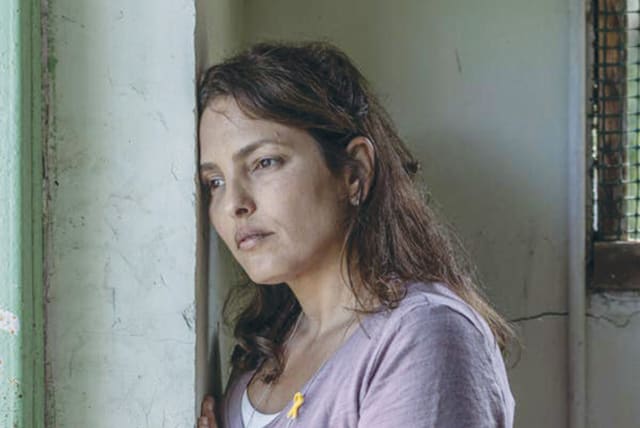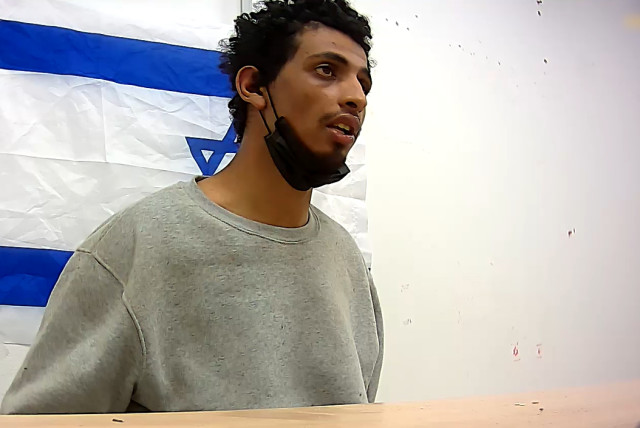Believe all women - Israelis included

So many people's refusal to listen, to recognize that Israeli women have been so victimized, opposes any precedent other Israeli victims may have had to come forward.
I want to start this article by saying that Amit Soussana is quite possibly one of the bravest women I have ever encountered.
Soussana, a released Gaza hostage, was the first survivor of Hamas’s systemic sexual abuse to come out publicly and speak about her plight in an interview this week with The New York Times.
She was held by a man named Muhammad in what seemed to be a child’s room covered in photos of Spongebob Squarepants. He would grope her, lift her shirt, and at one point, he forced her to commit a sexual act on him. He hit her repeatedly, pointed a gun at her, and made her do it.
There are no words to describe how difficult it must have been to come forward and tell this enormously horrific and traumatizing experience – and to the Times, no less, one of the most circulated publications in the world.
But one of the biggest challenges of coming forward is concern over the response, to be sure, and unfortunately, Israel’s opponents did not disappoint.
The nauseating honor given to the photographer who documented abuse
X (formerly Twitter) was filled with talkbacks claiming that Soussana was lying, that the article was sharing Israeli propaganda, and in more extreme cases, arguing that the rape of Israeli women was justified. As a human being on this earth, but especially one with even a shred of empathy, that should have hurt to read. As a woman who knows what it is to face gender biases and sexism, it was nauseating.
Equally nauseating was finding out that one week prior, Associated Press freelance photographer Ali Mahmud won the Team Picture Story of the Year award for his photograph of Shani Louk’s half-naked corpse as Hamas terrorists were driving it away on October 7.
The photograph was taken in close quarters. The photographer stood mere meters away from the terrorists and captured the image. Pictures of the Year International, the photojournalism competition that awarded Mahmud, shared the photograph on its Instagram, praising the photographer. Louk’s name was not mentioned anywhere.
Mahmud was named in the lawsuit by October 7 victims’ families last month against Reuters and the Associated Press, which claimed that they had employed photojournalists who accompanied the Hamas terrorists on their massacre.
These two incidents, one after the other, have brought forth more than anything, that Israeli women have had to put up with some of the worst conditions imaginable. Still, I do not turn my head to the anti-Israel crowd but rather to women around the world.
Women have historically faced discrimination, harassment, and violence solely based on their gender. We share this trauma bond. This shared experience should foster solidarity and empathy among women, but Israeli women have felt more alone than ever before, abandoned by their sisters abroad.
What happened to #MeToo? What happened to “believe the victims?” We are accustomed to facing skepticism, victim-blaming, and institutional barriers to justice, but not from one another: not from other women.
Their refusal to listen, to recognize that Israeli women have been so victimized, opposes any precedent other Israeli victims may have had to come forward. By believing and amplifying the voices of women who have experienced sexual violence and femicide, we can ensure that their stories are heard and their experiences validated. By ignoring them or calling them liars, we shut them up.
By demonstrating belief and empathy toward other women, we also set a powerful example for future generations. By refusing to do so, we teach them that it is alright to silence other women and deny their right to support or solidarity.
To all those who refuse to believe or simply ignore or turn away from Israeli victims of sexual violence, there is something deeply disturbing about your choices, and your attempts at self-justification of these choices only further prove how depraved this mentality is.
But women, other women, look up. We have worked so hard to create a nurturing community of understanding, empathy, and solidarity, and you will throw all of that out of the window just because it does not align with your political narrative.
Believe all women – Israelis included. Do that, or prove your hypocrisy.
The writer is deputy editor-in-chief of The Jerusalem Post.
Jerusalem Post Store
`; document.getElementById("linkPremium").innerHTML = cont; var divWithLink = document.getElementById("premium-link"); if (divWithLink !== null && divWithLink !== 'undefined') { divWithLink.style.border = "solid 1px #cb0f3e"; divWithLink.style.textAlign = "center"; divWithLink.style.marginBottom = "15px"; divWithLink.style.marginTop = "15px"; divWithLink.style.width = "100%"; divWithLink.style.backgroundColor = "#122952"; divWithLink.style.color = "#ffffff"; divWithLink.style.lineHeight = "1.5"; } } (function (v, i) { });

